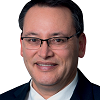The reasons for this are many fold. Northland is the fastest growing region and there are simply more people. The average age of GPs in Whangārei is between 55 and 69, with a number of GPs retiring or about to retire so fewer GPs. I would add that practice nurses are also an older cohort and while I drew attention to the petition to increase GPs I also acknowledge the importance of nurses and the whole primary care team.
Appointment delays in general practice may be partly explainable with the changing nature of general practice. There are more older people now who generally need more time in the consultation. Mental health is a more frequent component of consultations and these need great care, carry great risk and take more time. My colleagues also note the large administrative burden that seems to take more and more of their time away from the bedside.
• Premium - Lack of GPs forces temporary closure of Northland health practice
Another measure of a reduced local GP workforce is how many foreign graduates are required. This is no reflection on foreign graduates who do a great job and actually prop up our health system. Across New Zealand 40 per cent of GPs are foreign graduates and in Whangārei the number is 60 per cent, again 40-50 per cent above the national average.
The solution to insufficient GPs must take into account the 7-10 years training to produce a GP. This is not a tap that can be quickly turned on. The immediate solution has been to bring in foreign graduates but a longer-term GP workforce strategy and funding plan is required. I am proposing a graduate medical school that takes graduates who already have a degree and medically trains them for 4-5 years. This is the model in the US and in parts of other health systems such as Canada and Australia. A third medical school focused on retaining GPs in rural communities would go some way to addressing this issue.
